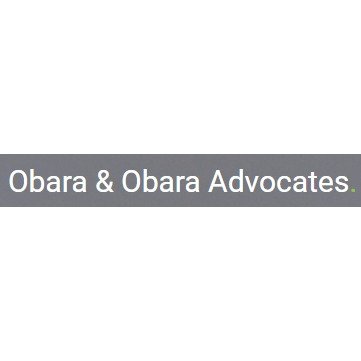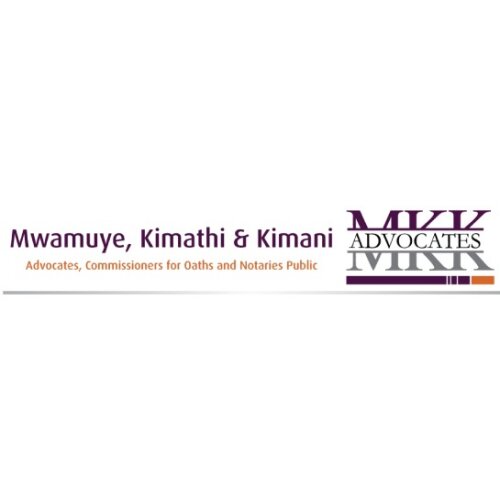Best Employment Benefits & Executive Compensation Lawyers in Kisumu
Share your needs with us, get contacted by law firms.
Free. Takes 2 min.
List of the best lawyers in Kisumu, Kenya
About Employment Benefits & Executive Compensation Law in Kisumu, Kenya
Employment Benefits & Executive Compensation law in Kisumu, Kenya focuses on the rights and obligations of employers and employees concerning compensation packages and supplementary benefits offered to workers. This field of law encompasses various factors, including health insurance, retirement plans, stock options, bonuses, and severance packages. In Kisumu, as in the rest of Kenya, these aspects are governed by various local statutory regulations, labor agreements, and contracts that ensure fair treatment and compliance with national standards.
Why You May Need a Lawyer
There are several situations in which individuals may seek legal advice regarding Employment Benefits & Executive Compensation in Kisumu, Kenya:
- Negotiating employment contracts or executive compensation packages.
- Understanding the implications of changes to labor laws affecting benefits or compensation.
- Resolving disputes over withheld benefits or incorrect compensation.
- Ensuring compliance with tax regulations pertaining to employment benefits.
- Addressing wrongful termination or severance issues and negotiating appropriate settlements.
Local Laws Overview
The key legal framework governing Employment Benefits & Executive Compensation in Kisumu, Kenya includes the Employment Act of 2007, the Labour Relations Act, the Occupational Safety and Health Act, and the Retirement Benefits Act. These laws establish minimum standards for employee treatment, outline the rights to various benefits, and ensure safe working conditions. Additionally, collective bargaining agreements may supplement these statutes for specific industries, providing enhanced benefits and compensation provisions.
Frequently Asked Questions
1. What are the mandatory employment benefits provided under Kenyan law?
Under Kenyan law, employees are entitled to certain mandatory benefits, including paid annual leave, sick leave, maternity and paternity leave, and contributions to the National Hospital Insurance Fund (NHIF) and National Social Security Fund (NSSF).
2. How are executive compensation packages typically structured?
Executive compensation packages often include a base salary, bonuses, stock options, health insurance benefits, pension plans, and other incentives aimed at aligning the executive’s performance with the company’s goals.
3. Can an employer change the terms of employment benefits without consent?
An employer cannot unilaterally change the terms of an employee's benefits without consent. Such changes should be negotiated and can be illegal if they fall below the standards outlined by labor laws or existing contracts.
4. What recourse do I have if my employer has not provided the agreed benefits?
If your employer fails to provide the agreed benefits, you may file a complaint with the Labour Office or pursue a legal claim through the Industrial Court for breach of contract or violation of labor laws.
5. Are there tax implications on benefits and compensation packages in Kenya?
Yes, certain benefits and compensation elements are subject to taxation under Kenyan law. It is crucial to understand these tax obligations, ideally with the assistance of a legal or financial advisor.
6. What is the role of collective bargaining agreements in employment benefits?
Collective bargaining agreements can enhance the baseline employment benefits stipulated by law, providing workers with greater benefits and protections. These agreements are negotiated between employers and trade unions.
7. How is unfair termination related to compensation?
In cases of unfair termination, employees may be entitled to specified severance packages or legal remedies that compensate for the loss of expected income and benefits.
8. Can expatriates receive the same benefits as local employees in Kenya?
Expatriates working in Kenya are generally entitled to benefits similar to those of local employees, subject to the stipulations within their employment contracts and any specific agreements with the employer.
9. Are there protections for whistleblowers regarding compensation disputes?
Kenyan law provides protections for whistleblowers to encourage the reporting of illegal or unethical practices, including issues related to employment benefits and compensation.
10. How do retirement benefits work in Kenya?
Retirement benefits in Kenya are generally managed through contributions to the NSSF and private pension schemes. Employees may also be entitled to post-employment benefits as outlined in their contracts or company policies.
Additional Resources
Here are some resources and organizations in Kisumu and Kenya that can assist individuals with issues related to Employment Benefits & Executive Compensation:
- The Ministry of Labour and Social Protection
- The National Social Security Fund (NSSF)
- The Kenya Revenue Authority (KRA) for tax-related inquiries
- Local bar associations for legal assistance
- Kisumu trade unions and labor relations offices
Next Steps
If you need legal assistance concerning Employment Benefits & Executive Compensation in Kisumu, consider taking the following steps:
- Identify the exact nature of your issue or concern and gather all relevant documents.
- Consult with a lawyer who specializes in employment law to assess your situation.
- Contact the nearest labor office or a labor relations officer for guidance.
- Engage with relevant trade unions if the issue involves collective bargaining agreements.
Taking these steps can ensure that your employment rights are protected and that you receive any compensation or benefits to which you are entitled.
Lawzana helps you find the best lawyers and law firms in Kisumu through a curated and pre-screened list of qualified legal professionals. Our platform offers rankings and detailed profiles of attorneys and law firms, allowing you to compare based on practice areas, including Employment Benefits & Executive Compensation, experience, and client feedback.
Each profile includes a description of the firm's areas of practice, client reviews, team members and partners, year of establishment, spoken languages, office locations, contact information, social media presence, and any published articles or resources. Most firms on our platform speak English and are experienced in both local and international legal matters.
Get a quote from top-rated law firms in Kisumu, Kenya — quickly, securely, and without unnecessary hassle.
Disclaimer:
The information provided on this page is for general informational purposes only and does not constitute legal advice. While we strive to ensure the accuracy and relevance of the content, legal information may change over time, and interpretations of the law can vary. You should always consult with a qualified legal professional for advice specific to your situation.
We disclaim all liability for actions taken or not taken based on the content of this page. If you believe any information is incorrect or outdated, please contact us, and we will review and update it where appropriate.













